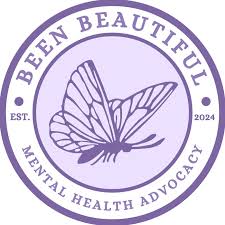Op-Ed: Keep social media politics-free
One Facebook feed thats amuck with posts about the past presidential election. (Picture creds to Rachel Carr)
March 8, 2017
Most teenagers go on social media for funny memes, relatable posts, aesthetics as well as keeping in touch with family, friends, attractive strangers, and even more attractive celebrities.
It passes the time mindlessly and entertainingly, everyone’s out to have a good time. And it was — until election season came around and beloved POTUS Donald J. Trump began passing not-at-all-controversial policies.
Then suddenly, everything that was good and pure in the world on social media turned into political jargon.
Naturally, it can get agitating, to say the least, when an entire feed is retweets, reblogs, and the like from political sources such as Politico, Breitbart, CNN and FOX and random people that use enough academic language to make themselves appear to know what they’re talking about. It’s impossible to block everything — unless the goal is to excommunicate the entire population, which honestly might be easier.
Pew Research Center has determined that 53 percent of Facebook users and 39 percent of Twitter users say their feeds are comprised predominantly of political views. On top of that, 48 percent of all social media users say they are fed up with the constant postings, much of them being boundary-crossing, says the majority.
Though the previous figure may be seemingly composed of liberal-hating conservatives who are antagonized by the outcry regarding the political climate, questions regarding party affiliation have uncovered that these annoyance-ridden responses are universal, not being overpopulated by any one major party or nonpartisans.
It’s safe to say that no one is safe from the rampant display of political opinions, but why? Why do people feel the need to turn their Facebook — a place meant for embarrassing pictures of their children and other PG-rated pictures and status updates– into an art gallery of campaign posters, propaganda, snarky memes and passive aggressive videos that only result in annoying just about everyone?
Well, one study from Harvard University found that there’s a neurological reward for speaking up. “The mesolimbic dopamine system — the seat of the brain’s reward mechanism — was more engaged by questions about the test subject’s own opinions and attitudes than by questions about the opinions and attitudes of other people,” says the creator of the study, Diana Tamir.
This means that when people post about their convictions and feelings on social media, it activates the brain’s reward system by alleviating the anxiety of keeping something in and validating themselves, compelling them to publish more of their beliefs.
Likes, favorites, retweets, reblogs and reposts are like ‘Bless yous’ after someone sneezes in class. The more a person has, the more important they feel — like their peers care what they have to say, thus stimulating the endorphin effect in the brain.
Since everyone is chemically compelled to post the political statements they’d probably never say in real life (there’s no stopping it), this begs the question of how to cope.
There’s always blocking, of course, as 39 percent of people are prone to do when facing agitating political debate on their happy-go-lucky social media platform, according to the same Pew Research Center study.
There’s also the cliche, ‘if you can’t beat ‘em, join ‘em,’ in which case if it is felt that a person really needs to vocalize their views, all the power to them. But the only thing this is achieving is amplifying the problem and causing unnecessary and unwanted arguments, making it worse for fellow social media users outside the debate.
So please, please don’t do this.
Honestly, there’s nothing that can be done to stop the madness other than self-restraint or going off the grid. No one is going to change their mind because of a meme.
The best way to go is to educate yourself on all (yes, every single one) political views, parties, candidates, policies and anything else that could be ranted about in 140 characters or less. This will prevent the irrational posts that are composed out of fury instead of facts.
Find your own facts. Don’t rely on social media’s facts or the infamous “alternative facts” as the basis of governmental information. An informed mind is 10 times more likely to be able to stabilize their anger, says psychologist and scientific journalist Daniel Goleman, allowing them to be able to see the abundance of politics running amuck in their feed and have an infinitely less frustrated reaction to it.
There will always be people who insist that putting their opinions in print. It can be gratifying and should be encouraged if rational and based on facts. But, as reported by the same PRC study, 54 percent of users rely on social media to educate themselves politically. This comes with a whole mess of problems where clear bias is misunderstood as concrete information, leading to skewed election result that could be regretted forever.
So, before hitting send, think of others, how annoying it is, the arguments it’ll definitely start, and ask yourself, “Do I really want to hit send?”





















